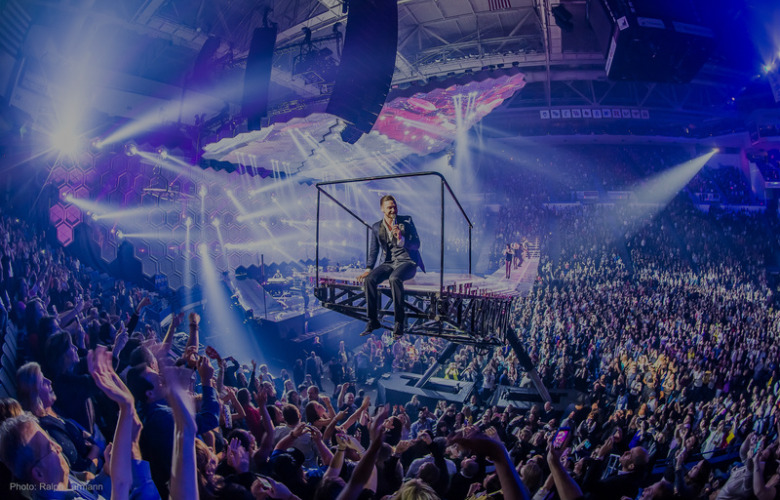
Fireplay is a dynamic, open, and collaborative multidisciplinary design studio made up of artists from all walks of life who combine their talents to make each and every project impeccable. With a team of live design masterminds, Fireplay has quickly become the go-to team when an artist is looking to take their tour to the next level. CEO Nick Whitehouse and Director of Lighting Brian Vaughan told us about their vision in this interview.
Fireplay’s CEO, LX designer and creative producer Nick Whitehouse learned his craft from twenty years of touring.
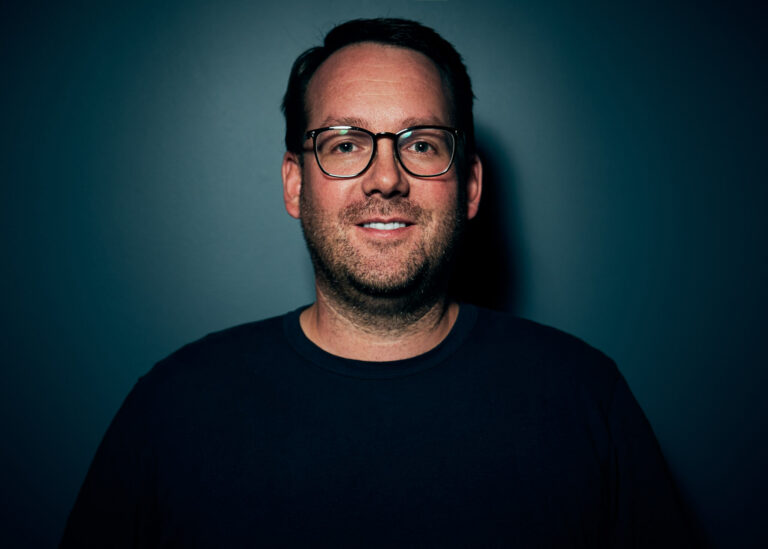
Brian Vaughan is not just the director of lighting, and a multi-disciplined designer. He is also a catalyst for allowing artists to achieve their vision. As well as for enabling managers to efficiently reach their goals together.
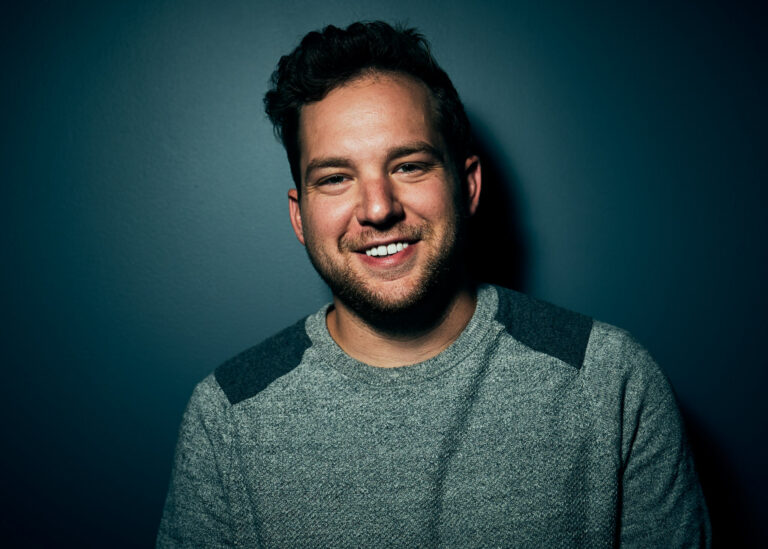
In our interview, both Nick and Brian share some of their experiences and thoughts.
For me it all began with lighting tech and design in the late 90s to early 2000 in the UK. I used to do the tech for small clubs.
Then, I had my big break working with Coldplay. I was with them as they grew from clubs to stadiums and took me with them.
My career exploded from there as I began working with many well-known pop artists.
Within the last twenty years of touring, however, the role of lighting design in music concerts has changed considerably.
It’s not just anymore about having an amazing light show. Nowadays, it is a full entertainment program. We have enormous sets, video, lights, etc. It becomes far more a theatrical production.
Over time, I was asked more and more often to bring in the right people to cover all aspects of the show’s design.
Then, about five years ago, it all got a point where touring became a huge business venture. It was no longer just about going out there to make money off of the latest album release. Now it was major ticket sales, merchandise, etc.
At some point, I got approached to develop a solution.
Which is how our company Fireplay got created. To offer full solutions for touring artists.
We did some great shows our business partners were very happy with, and thus carried on and further developed what we had started.
What is really cool about our efforts at Fireplay is that we are able to pull together great teams of people. We are able to work as a group. We are efficient. The process works.
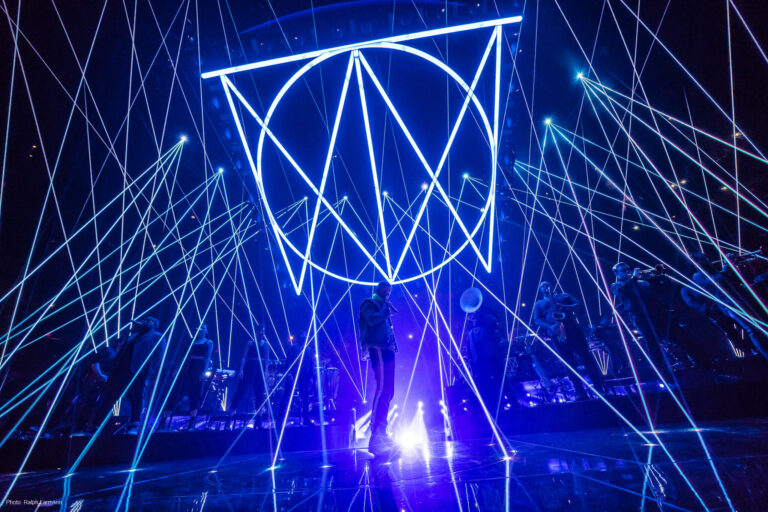
One thing 2020 has taught us, however, is that our process had worked almost too well. We were becoming so efficient that, in turn, we became less creative.
We realized we need to slow down. In the future, we want to do rather less but more creative projects.
That’s what Fireplay is meant to be. That’s who we are.
My mentor was Brian Leitch. I learned so much from this magnificent man. He was one of these people who are exceptional in finding talent. Whether it was an artist, crew chief, lx designer, etc.
That’s actually one thing which is largely missing in our industry: to create education, to let young people know what we do is a real career path. And to help them to find their way.
In the entertainment industry in general you have to be on the right path and you have to know someone. It is these right-place-right-time moments which bring you forward.
This is something I am really trying to concentrate on: to give people the tools they need to find work. To allow them to build their experience. Not just developing their talent, but lots of things which go along with working with any artist: the business side, politics, etc.
We are trying to find younger people who are eager to then help them find a space within the industry in which they can grow.
I started with Lx when I was twelve years old. I began by doing the lighting tech for church events. Then I went to college.
This was also the time when I started seeing a lot of Nick’s shows. Nick was always someone I looked up to. His work on Justin Timberlake’s tours was what led to me finally knowing without a doubt that I was going to get into lighting and, that I would, really, some day, work for Nick and Justin Timberlake.
As I was in college studying something completely different, I always knew lighting and lighting design was what I wanted to do. Thus, I jumped on any opportunity I could find.
Anything, no matter how far away the gig was or for how long. Not saying “no” to anything was such a pivotal thing for me. And, in the process, I always aimed to learn as much as I could.
Through that entire process I had a few mentors who taught me everything.
The most important lesson that I took away from my career thus far is: You are only as good as your attitude.
You can be the best programmer, etc. But if you have the wrong attitude you won’t make it. Because the attitude you show in working with them and with the clients is what people care about the most.
I started doing country music tours at some point. And worked for a country artist. I wanted to finish the year with him.
As soon as the contract was finished, I moved over to working together with Nick for another artist, Thomas Rhett, and we did the Home Team tour together.
I was so excited to finally be working with Nick.
In the beginning I sat in rehearsals and just found myself the whole time watching Nick create the lighting looks in shock. I listened intently. And learned as much as I could.
Nick became my mentor and we just bounced questions off of each other.
After this initial experience we began working together more and more.
This led to Nick asking me to be the lighting director on Justin Timberlake’s Man of the Woods tour. It was my dream come true.
After the tour finished, Nick asked me to be a part of Fireplay, and here we are.
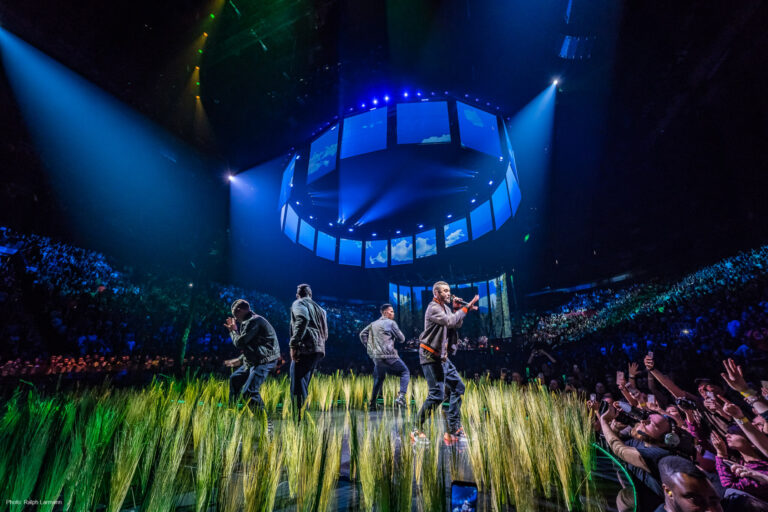
Working with Brian was great. It was his attitude. Asking questions.
For a lighting designer the LX console is like a paint brush. I still like to be on it. Sometimes it’s hard for me to stand back and tell someone what to do instead. Brian laughs at me every so often because I have an old fashioned approach.
I was looking for a lighting director.
During two years, for Justin Timberlake’s Man of the Woods tour, Brian delivered the show perfectly every night. Everyone developed a great trust in him. He grew massively throughout that time period.
So, now we built Fireplay into a company and Brian runs the lighting side of it.
We are always looking for new people. Because, some of the best ideas come from fresh, new talent.
As mentioned earlier, this year has helped us to focus more again, and to find out how we want to move forward.
I don’t tour anymore. And Brian is slowly getting to a point, too, where he doesn’t want to tour for much longer.
One of my best experiences was always to make time for people who wanted to see front of house etc. Often, showing them around the venue, explaining in more detail what was happening on site inspired them to keep going with their learning and their career.
For everyone in this industry it’s been a hard few months. We have tried to remain positive and have received a lot of good feedback from posting stories online.
For example, a little while ago we posted a couple of Britney Spears tour photographs.
And then got messages back like, “You don’t realize this, but when I saw that show it inspired me to keep going in my lighting career.”
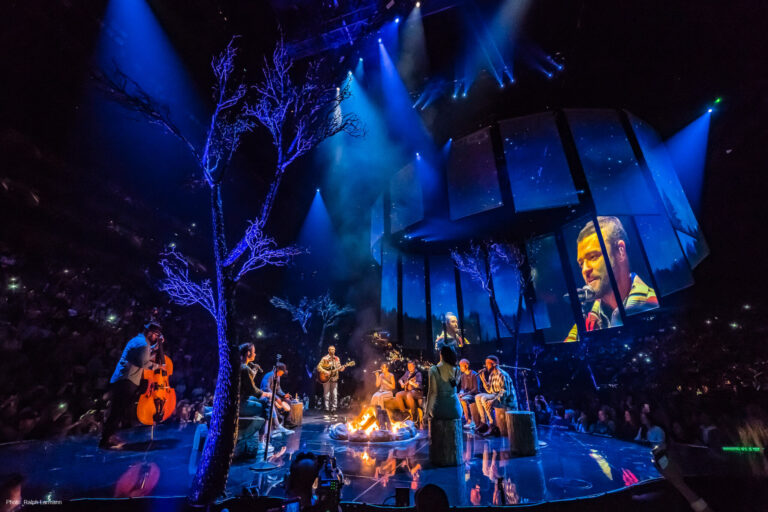
Or when we recapped another, smaller show, a guy said, “You might not remember me, but I was in a group of students who came to see the show. It inspired me greatly.”
Like Brian says, we always take the time to show people around. It is important.
Because most people don’t understand the complexity of backstage. Everything is hidden from them. They only ever see the final product on stage.
It is one of the problems we have right now, during the pandemic-stricken 2020. Our industry has closed down. And many people have a hard time seeing how our work is essential. Because most people who aren’t backstage don’t understand what we do.
Fireplay is very conscious of this conundrum. Which is why we are always trying to explain. It is important that we give people insight in what we do.
For a long time, my wife didn’t understand my job. She also thought it was all a big party. So one day I said, ok, come with me for the whole day and follow me on everything I do. Afterwards, she said, “Yes, I get it now. It is not a party. It is hard work.”
Especially show creations are always so intensive.
It’s an industry we all love. You can’t be in this industry if you don’t love it. Because you wouldn’t be able to cope with the hours and the backbreaking work requirements.
It is a tough job. But after every show we can look back and be proud of what we have created.
If there are people who read this article who aren’t sure they’re on the right path, we want to encourage them as well: Just try it! Give it a year. If you sit at college wondering and dreaming about getting into our industry. Just try it.
If you are good, you’ll get on someone’s radar pretty quick. We want to find those people. And we want to help them make it.
Hopefully, by doing that we’ll help support the next generation of designers.
What is slightly different from Fireplay compared to other show solution companies out there is that we create moments rather than visuals. We create experiences and bring them to people. We want them to be absorbed by these experiences for a couple of hours. So they forget everything else.
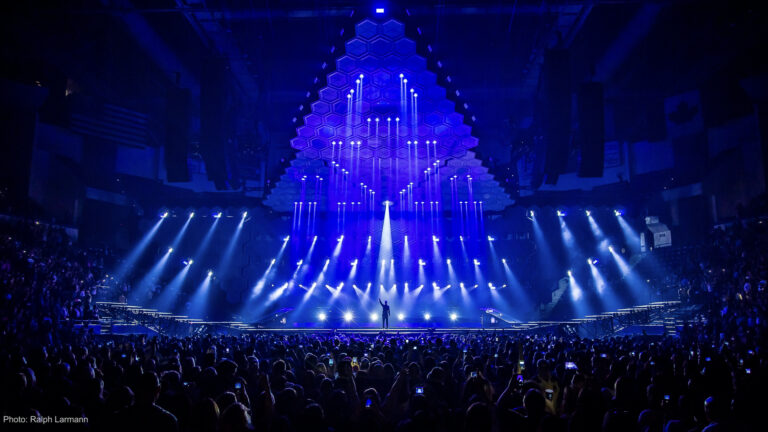
One very recent thing, brought on by the events of 2020, that we set about doing was to bring the connection we feel in real life to virtual.
We developed a tool called Virtual Crowd. And we tried to put our spin on it.
We did our first big event through Virtual Crowd a couple of weeks ago. The event was screened to thousands of people around the globe. The virtual crowd was art directed. And, unlike the Zoom style, the audio was there. So when the band stopped playing you heard the crowd.
It was the first time I heard an audience reaction like this in a long time. We saw the band change from rehearsal mode as soon as they heard it.
They talked to people online and for the first time in months the artists felt like they were connected again with the audience. And the audience with them.
Brian and others came together and created this new technology. We’ll keep pushing that until we can get back to the live world.
So, even though this was a tough year for the industry, there was also growth and success. It’s a great thing when in our world adversity is thrown at you and you work together to find a way to fix it. And in the end something better comes out of it than you thought possible.
The virtual crowds are good.
The fans are the reason the artists do shows. The artist wants to feel the fans and the fans want to experience the artist. Virtual Crowd brings that connection. It brings the live clapping back to events.
Never stop learning. Never become complacent. Nick always pushes us to do more, try one more time. After the creation of Virtual Crowd I now know a lot more about video. It also fine-tuned my skills dealing with clients and agencies.
We are pushing people outside of their comfort zones. That’s how you learn new skills and how you learn everything.
After this year and the challenges we took on our entire team now knows more about virtual projects than they ever thought they’d know. Everyone has learned new skills.
Social Media Links of Fireplay:
Official website Virtual Crowd
Keep Your Cool Backstage as a Stage Manager: 12 Insights
The Importance of Kindness in Entertainment
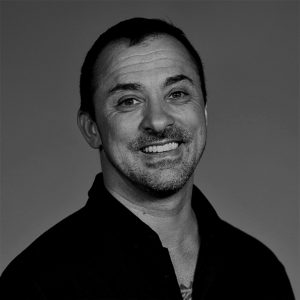

Liam Klenk was born in Central Europe and has since lived on four continents. Liam has always been engaged in creative pursuits, ranging from photography and graphic design, to writing short stories and poetry, to working in theatre and shows. In 2016, Liam published his first book and memoir, 'Paralian'.
Read Full Profile© 2021 TheatreArtLife. All rights reserved.

Thank you so much for reading, but you have now reached your free article limit for this month.
Our contributors are currently writing more articles for you to enjoy.
To keep reading, all you have to do is become a subscriber and then you can read unlimited articles anytime.
Your investment will help us continue to ignite connections across the globe in live entertainment and build this community for industry professionals.